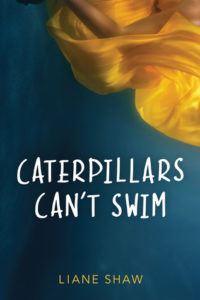[I don’t even remember how Lucy and I met. I feel like we’ve been friends for months now. It felt so organic to begin our friendship, don’t you love ones like that? I’m so happy I’ve been able to see Writing Wolves grow until now and am excited for the future!]
When Lili asked me to write a guest-post about representation for her, it actually helped me to feel more validated about being part of a marginalised community – people of colour & the LGBTQIA+ community are slowly being recognised more within current literature, but us disabled folks are still fighting hard to get noticed – so, to be included within this group of marginalised bloggers is a great honour! Thank you, as always Lili, for your unwavering support & love.
Before I start,
I want to point out that there is a large gap between the representation for mental illnesses/disabilities & representation for physical illnesses/disabilities. Mental health conditions are being written about more & more now, & as someone with depression, that is definitely important to me, but physical disabilities aren’t getting the same heed & that needs to change.
 You can pick up books within almost any genre & find some sort of mental health representation, even if you’re not actively searching for it. For example, the first book that I first saw myself represented in was Sinner by Maggie Stiefvater; I read this book for the first time in 2015 but have since then learnt how damaging Stiefvater’s writing & attitude has been to a lot of readers, including some bloggers writing for Lili’s representation series – this is something I acknowledge & do not defend in anyway. Nevertheless, Sinner was the first book I ever really saw myself in; both Isabel & Cole suffer from mental health issues & I saw parts of myself in both characters, so much so that it opened up emotions in me that I’d never experienced before. Whenever I’m having a bad depressive episode I listen to the audiobook because it helps me to feel validated in how I’m feeling & helps me to feel more normal.
You can pick up books within almost any genre & find some sort of mental health representation, even if you’re not actively searching for it. For example, the first book that I first saw myself represented in was Sinner by Maggie Stiefvater; I read this book for the first time in 2015 but have since then learnt how damaging Stiefvater’s writing & attitude has been to a lot of readers, including some bloggers writing for Lili’s representation series – this is something I acknowledge & do not defend in anyway. Nevertheless, Sinner was the first book I ever really saw myself in; both Isabel & Cole suffer from mental health issues & I saw parts of myself in both characters, so much so that it opened up emotions in me that I’d never experienced before. Whenever I’m having a bad depressive episode I listen to the audiobook because it helps me to feel validated in how I’m feeling & helps me to feel more normal.
 Another book that I accidentally found representation in was Shadows on the Moon by Zoë Marriott; main character Suzume is the only person I have ever truly related to when it comes to self-harm – & I mean within books & in real life. I cry so much whenever I reread certain parts of Shadows on the Moon because I totally understand Suzume & she will forever live within my messed up little heart. Shadows on the Moon remains my favourite book & you should all read it.
Another book that I accidentally found representation in was Shadows on the Moon by Zoë Marriott; main character Suzume is the only person I have ever truly related to when it comes to self-harm – & I mean within books & in real life. I cry so much whenever I reread certain parts of Shadows on the Moon because I totally understand Suzume & she will forever live within my messed up little heart. Shadows on the Moon remains my favourite book & you should all read it.
There you have two books, of many, in which I’ve accidentally found mental health representation, but, one does not accidentally stumble across physical disability representation; it just does not happen. But, that doesn’t mean I haven’t read some great books with amazing representation of physical disabilities. The first book that pops to mind when I think of this, is The Mummy’s Revenge by Andrew Beasley – a fantasy-crime novel with a wheelchair user as one of the main characters (and on the cover!).
 Charley is a strong female lead that has polio, meaning she uses a wheelchair daily; I loved this rep because, for one it’s in a MG book so is normalising wheelchair use to younger readers, but I also loved it because the representation was done well… Charley’s pain is mentioned throughout the book & it’s highlighted that she keeps working, even though she’s in pain; this is so important because a lot of ableist people question people’s disabilities if they’re seen to be working & getting on with their everyday lives. Charley was also feisty & didn’t let people insult her or her disability, which is something every disabled person will admire.
Charley is a strong female lead that has polio, meaning she uses a wheelchair daily; I loved this rep because, for one it’s in a MG book so is normalising wheelchair use to younger readers, but I also loved it because the representation was done well… Charley’s pain is mentioned throughout the book & it’s highlighted that she keeps working, even though she’s in pain; this is so important because a lot of ableist people question people’s disabilities if they’re seen to be working & getting on with their everyday lives. Charley was also feisty & didn’t let people insult her or her disability, which is something every disabled person will admire.
 A book I’ve read very recently that features disability representation is Caterpillars Can’t Swim by Liane Shaw; this book was one of my most anticipated reads of the year & there’s a lot I could say about it, but instead I’m just going to insert my GoodReads’ review & if you want to read my full rant about it you’ll find it on my blog soon…
A book I’ve read very recently that features disability representation is Caterpillars Can’t Swim by Liane Shaw; this book was one of my most anticipated reads of the year & there’s a lot I could say about it, but instead I’m just going to insert my GoodReads’ review & if you want to read my full rant about it you’ll find it on my blog soon…
“When I first started reading Caterpillars Can’t Swim, the disability rep seemed a bit off & the author certainly made a few mistakes with phrases & wording, but, & this is a very big but; this book turned out to be a brilliant depiction of a disabled teen learning just how unacceptable the way they’ve been treated is. I wish I’d had this book when I first got diagnosed with my disability, because I would have learnt much sooner how I should be treated by the people around me. We need more books like this & more writers like Liane Shaw.
“The second main character in this book is a gay teenage boy who sometimes likes to wear clothes that society says are for women; as I’m not gay my opinion on this rep isn’t that important, but I did personally think that this character was written well & in some places, better than the disabled character.
“Caterpillars Can’t Swim in a book about growing into a better person through understanding marginalisation better. It’s educational & emotional, & in the end I absolutely loved it.”
What’s to Come
I could write a lot more than I have done here about representation, but the point I really want to get across is that physical disabilities are yet to become commonplace in literature; mental health is actively being explored by many writers & publishers over many genres & age ranges, but wheelchairs, chronic pain, prosthetic limbs & everything else related to being physically disabled is still not getting the representation it deserves & that really is pretty shit.
This is what I keep saying! (And why I started the books with disabilities list I have on my blog!) Mental illness is finally being talked about more and rep’d more in the book world, but physical disability is still being left out. Even when people have discussions about diversity, I rarely see physical disability mentioned. When people have posts about disability, I still often only see them talking about mental illness and rec’ing books with mental illness. I’m always glad to see more people noticing this and talking about physical disabilities in books 🙂
I totally agree and need to read all of her recs!